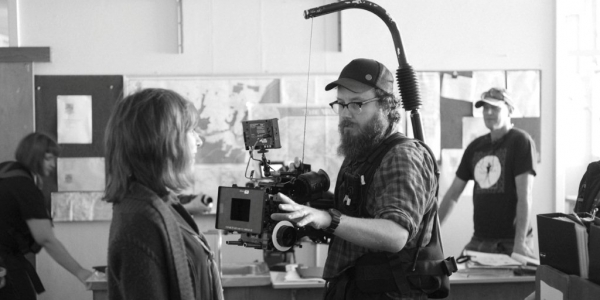“Oh man,” he says, when I gently ask about his recollections of the evening. “I actually don’t remember a thing from that concert. I know exactly which show you’re talking about – the one at the college in Sydney – and we were all completely wiped. It had been months and months on the road, and we were actually so excited about playing in Australia, but then we got there and…” he trails off, sighing with apparent exasperation at the memory. “Sometimes you walk off a plane, and you just have nothing. Touring so much is a really difficult thing, but it’s also something that you get better at managing over time.”
At the time Condon had just turned 22, released two albums and three EPs in three years, and was in danger of burning out. He had cancelled a US tour just over a year before, after being briefly hospitalised in Paris, and two weeks after the Sydney show the band cancelled their entire European summer tour. The demand for the group’s intermittently joyful and elegiac melodies was at an all-time high, but there were concerns about the artist’s ability to meet it. “It was an interesting time,” the now-married and (more) settled Condon says, with careful understatement. “It feels like a long time ago now. Things had to change.”
Condon departed from Ba Da Bing Records and established his own Pompeii Recording Co. prior to the release of last year’s long awaited third full-length, The Rip Tide. Fans and critics alike have praised the album for its distillation of Condon’s world music influences into an entirely new sound; the band have embraced their Americana, and they’re not afraid to sing/play it loud. Much has been made of Condon’s supposed six-month sabbatical in upstate New York throughout the album’s writing and recording process, so it comes as little surprise when he says that he’s only just returned from another such trip. Only this time, his return to the city was delayed by a significant force of nature known as Sandy.
“There was water everywhere, man. I could have canoed back to my house this morning, but I decided against it,” he says. In fact, it’s our second attempt at the interview, following previous communication breakdowns due to the destruction wrought on his home city and state. “For the most part we’re doing fine in Brooklyn. We weren’t hit too hard at all, which is lucky because some people got it a whole lot worse… Imagine being in Cuba, or Haiti right now. What do you – how do you even make a plan from there?” The question has barely taken shape across his lips before Condon suddenly goes quiet again, as if overwhelmed by the sheer enormity of the concept.
Often portrayed as a miner of the music that he found through constant travel, the image of Condon as a troubadour, trekking along dusty roads with just a ukulele for company, is etched into his folklore – so I’m interested to learn that he was the child of two parents who’ve never owned a passport between them. Well, until recently. “The last time we [were] in Australia was very different to when you saw us,” he chuckles softly. “When we got there I didn’t have to go straight to a gig, so I think I slept for about a day. I woke up to the sound of my phone buzzing, and I picked it up to hear my mum on the other end. I should probably point out that it’s never a good idea to answer your phone after being asleep for an entire day. Anyway, I’m all startled because my mum says, ‘Hi Zach! We’re in Sydney! We’ve come to see your show at the Opera House!’
“At that point my parents had only seen two shows of mine, and they were both hometown shows in Santa Fe,” he continues. “So here I am, fairly bewildered and half awake, on the other side of planet with my parents wanting me to show them around… The best part was that recently a friend showed me their Facebook page – I don’t have one myself – and all the photos are so cute, because it’s all from their trip. You know: ‘Us and Zach in Sydney’, and ‘Zach on the Harbour’.”
Would he say his reportedly transcendent performance that evening was helped by having two special fans in the crowd? “Maybe a little bit,” he says. “I had told them it was going to special show, because Australia is a special place – and Australians are different again. You’ve all got that cold, gnarly wit going on: I honestly describe it to people as being like California, if that place had a wicked sense of humour.”
BY BENJAMIN COOPER







